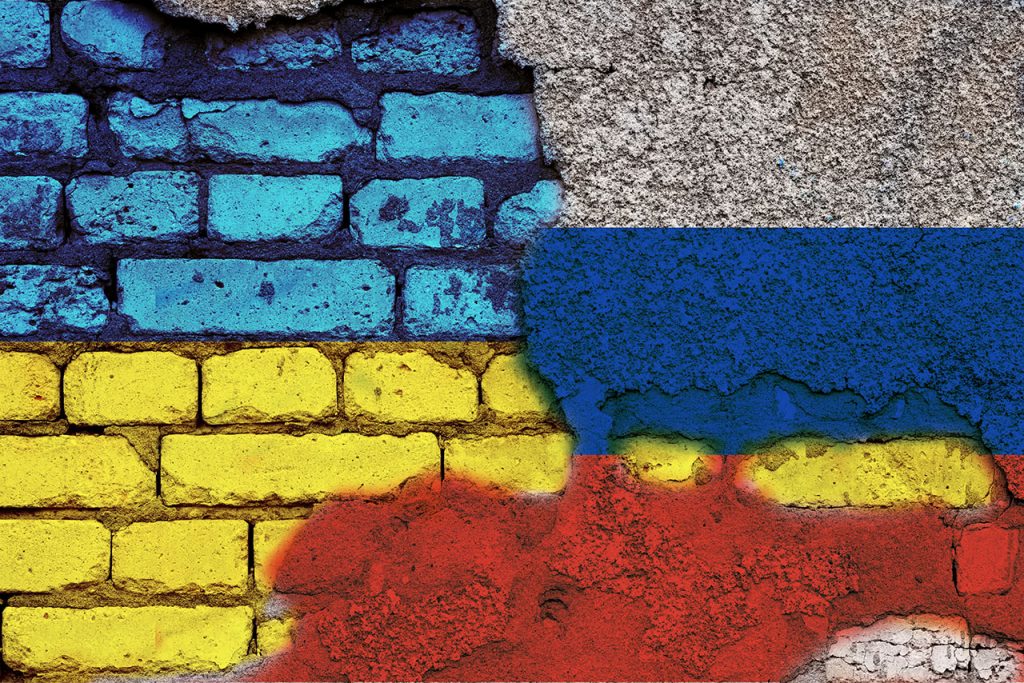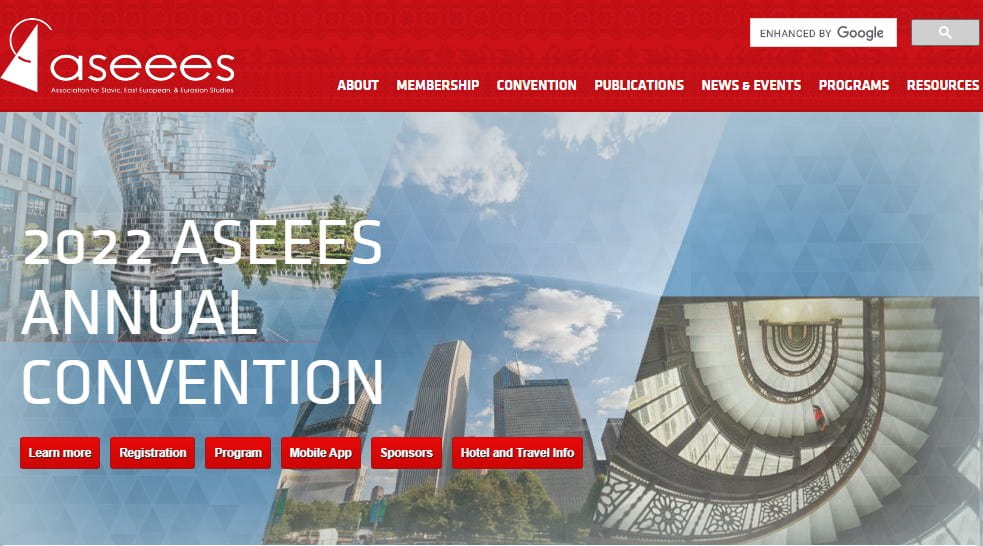Andriy Zayarnyuk: "When we look at the intellectual construction of the world from the position of an American college or British university, a very imperial picture of reality emerges"
ABSTRACT. This interview with the Ukrainian Canadian historian Andriy Zayarnyuk features a frank discussion of the contradictory positions held by many Western historians and intellectuals, who, after 24 February 2022, are more inclined to accuse Ukraine and NATO, rather than the Kremlin regime, of what is happening. Why do historians still maintain this position? How do neocolonial patterns and nostalgia for the imperial past influence the crystallization of pro-Russian views in Western European and North American academic circles? What code of ethics for historians is the most acceptable in the conditions of the Russo-Ukrainian conflict in Eastern Europe? This text seeks to answer the many difficult questions that have emerged in the new geopolitical reality.
"Servant of the regime" is the best way to define those historians who support the official version of the past"
Professor Zayarniuk, you recently published an article in which you raised the thorny question of the role being played by historians and Western academia against the backdrop of the Russo-Ukrainian War. When and how did you become interested in this set of problems? Have you had any personal experience that spurred you into analyzing trends in the study of Ukrainian history in Western academic institutions?
I became interested in this topic back in 2014. I noticed two trends when the Russo-Ukrainian War began, immediately after the annexation of the Crimea. First, Putin put forward pseudohistorical arguments to justify the annexation of the Crimea and legitimize these aggressive actions. Inasmuch as these were historical arguments, I very much expected historians to react critically to them.
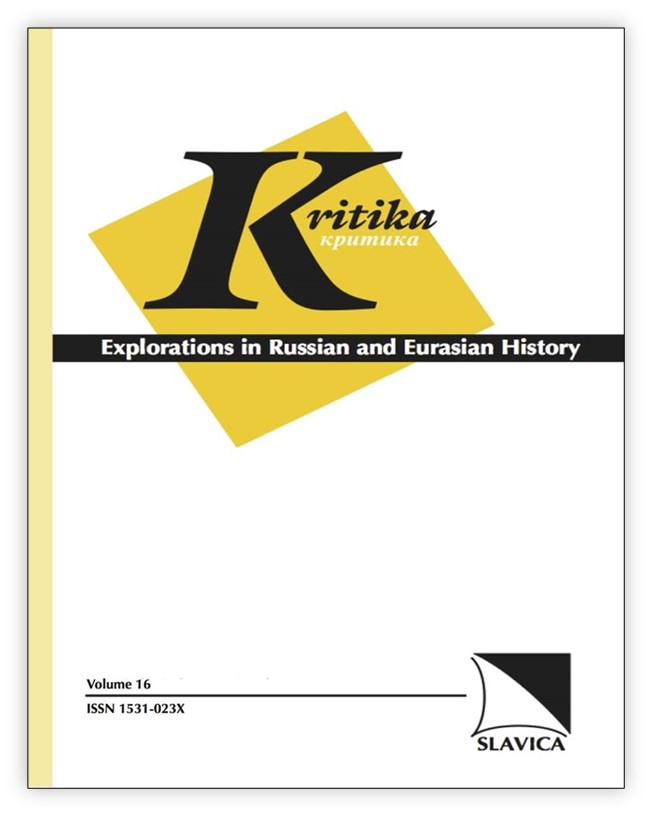
In early 2015, the journal Kritika: Explorations in Russian and Eurasian History published a separate thematic issue featuring a forum about Ukraine. Reading the articles in this forum, written by quite well-known historians who study Ukraine, I was shocked by how much their texts revealed a tendency to blame Ukraine and present the events of 2014 as an internal Ukrainian conflict. All this was very consistent with Putin's declarations. At the same time, scholars who had studied political history for many years and written a large number of books on this topic did not even mention Putin and his pseudohistorical arguments. Such use of history by the Russian regime looked extremely anachronistic in the twenty-first century. Perhaps in the 1930s, these arguments might have convinced some people, but it was clear that Putin's return to this discourse was now unacceptable. Ultimately, the Russian public accepted this discourse as entirely legitimate rhetoric and Putin's pseudohistorical arguments as justification for the aggression and occupation of a neighboring country's territories.
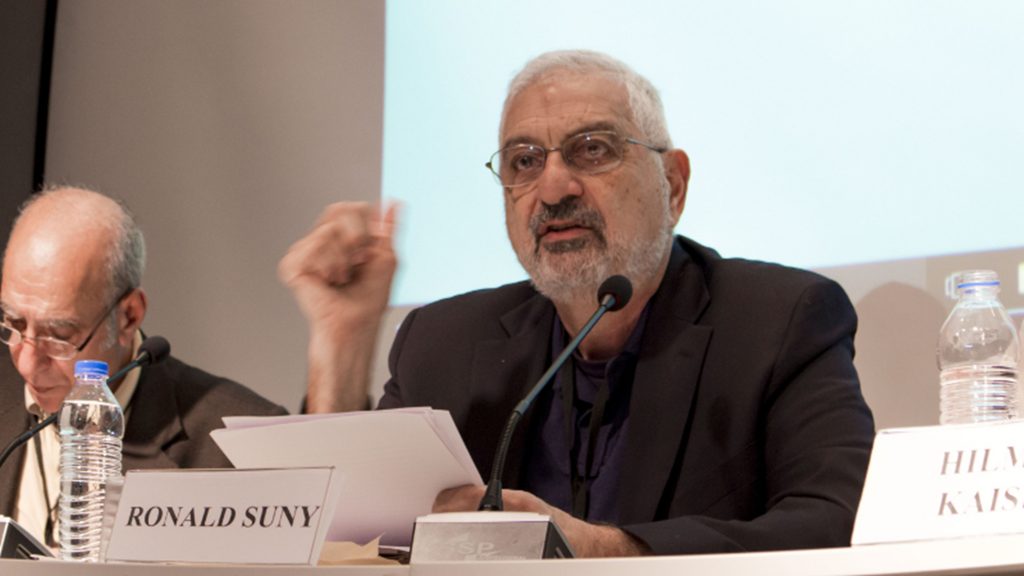
In February 2022, when the situation shifted to a completely different level — the full-scale Russian invasion — this problem did not go away for historians. Moreover, this circle of historians became considerably larger. I am talking about people who had formed their view of the history of Russia, the Soviet Union, and the post-Soviet space in the West. These are some very talented and influential historians, for example, Sheila Fitzpatrick1 and Ronald Grigor Suny.2 Their positions and public statements made in late February–early March 2022 also shocked me. Under these circumstances, Kritika did not come up with anything better than to dig up this old thematic issue from 2015 and "capitalize" on this tragedy, as though saying, "See, here are articles about Ukraine that explain everything." In reality, these texts blame Ukraine, not Russia, for what is happening.
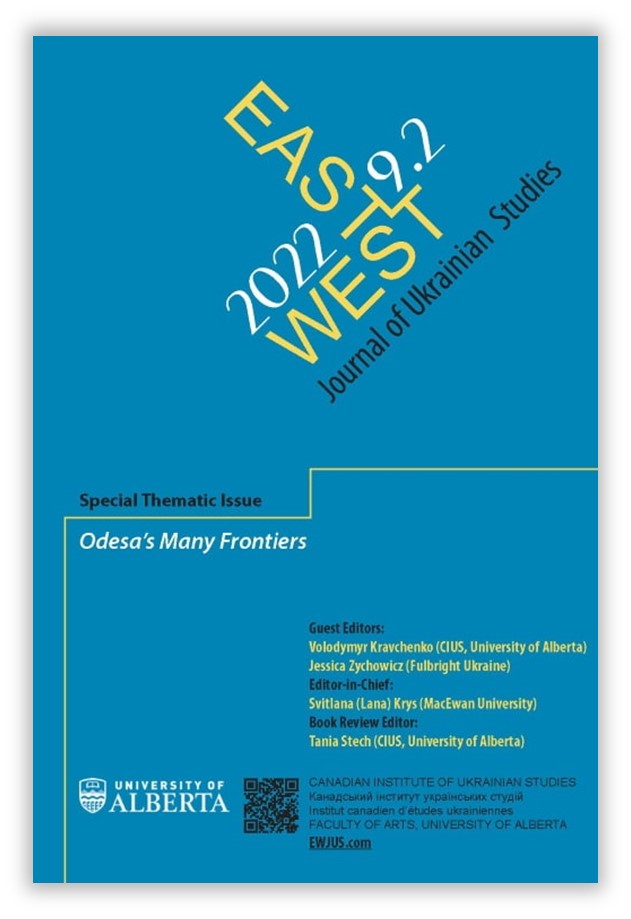 That really affected me, and this article, written in April 2022, was my rebuttal. In May, I sent it to Canadian Slavonic Papers, and one of the article reviewers really didn't like it. He called it a manifestation of Ukrainian nationalism and exceptionalism and selective smearing of certain historians. So, I withdrew my article from Canadian Slavonic Papers and published it in East/West: Journal of Ukrainian Studies. The article addresses certain questions that I, as a historian, had always contemplated: the ethics of the historical discourse and profession and the personal responsibility of historians. Little is said about this in Eastern Europe as a whole. However, if you look at the web pages of associations of historians in North America, this ethical component is one of the defining factors in their activities. It applies especially to those cases where we talk about the recent past and how communities and societies use it. In this case, we often talk about a rather dangerous thing that demands much greater responsibility than, for example, the historical discourse about the Late Middle Ages, the Early Baroque period in Italy, etc. That is why I wanted to reflect a bit on the responsibility of historians, who so love to instruct their readers and attach labels, tarring people as "fascists" or "blood-sucking killers." It is interesting to see how the position of these same historians looks against the backdrop of the bloody and horrific events that all of you are now experiencing in Ukraine.
That really affected me, and this article, written in April 2022, was my rebuttal. In May, I sent it to Canadian Slavonic Papers, and one of the article reviewers really didn't like it. He called it a manifestation of Ukrainian nationalism and exceptionalism and selective smearing of certain historians. So, I withdrew my article from Canadian Slavonic Papers and published it in East/West: Journal of Ukrainian Studies. The article addresses certain questions that I, as a historian, had always contemplated: the ethics of the historical discourse and profession and the personal responsibility of historians. Little is said about this in Eastern Europe as a whole. However, if you look at the web pages of associations of historians in North America, this ethical component is one of the defining factors in their activities. It applies especially to those cases where we talk about the recent past and how communities and societies use it. In this case, we often talk about a rather dangerous thing that demands much greater responsibility than, for example, the historical discourse about the Late Middle Ages, the Early Baroque period in Italy, etc. That is why I wanted to reflect a bit on the responsibility of historians, who so love to instruct their readers and attach labels, tarring people as "fascists" or "blood-sucking killers." It is interesting to see how the position of these same historians looks against the backdrop of the bloody and horrific events that all of you are now experiencing in Ukraine.
In your opinion, what role should historians play in the conditions of this war? What is the first thing that they should do? Some Ukrainian historians have chosen to study counterpropaganda. Others think this is not quite compatible with the historical profession as it then forces one to engage in alternative propaganda activities. This may lead the historian in a not entirely correct direction, for we are championing the right to a democratic society in this war. Some historians have decided that now is not the time to be doing research, so they have taken up arms and gone to the front to defend Ukrainian statehood. What is the best thing that a historian can do at this time?
Actually, this depends a lot on where the historian lives. Historians in Russia have one choice; in Ukraine — another, and in Canada — yet another. In my opinion, a historian's specific code of ethics is crucial. I can understand the people who have taken up arms. We are all connected with some citizens, and we write history for a reason, for specific audiences, say, for the Ukrainian people (no matter how pretentious this may sound). Thus, some historians believe that the best thing they can do now is to serve this nation, not with words but with weapons in their hands. There are people who, on principle, reject violence and do not take up arms. I understand them, too. This stance corresponds to their code of ethics.
In Russia, there are cases of excellent behavior shown by historians who left the country after 24 February 2022. They could not remain for moral considerations, not because they had been expelled. These people packed a small backpack or a few suitcases and departed Russia because they could no longer work there. Of course, they had a chance to say nothing and adapt, but these historians opted for a different behavioral strategy. For example, we all know about Tatiana Tairova-Yakovleva, who recorded a video in support of Ukraine and then left Russia. I would not like to name anyone else because not all of these people may have ended up on the Russian security services' blocklists. Some Ukrainian historians were working in Russia, and they did the same thing. I respect these people very much.
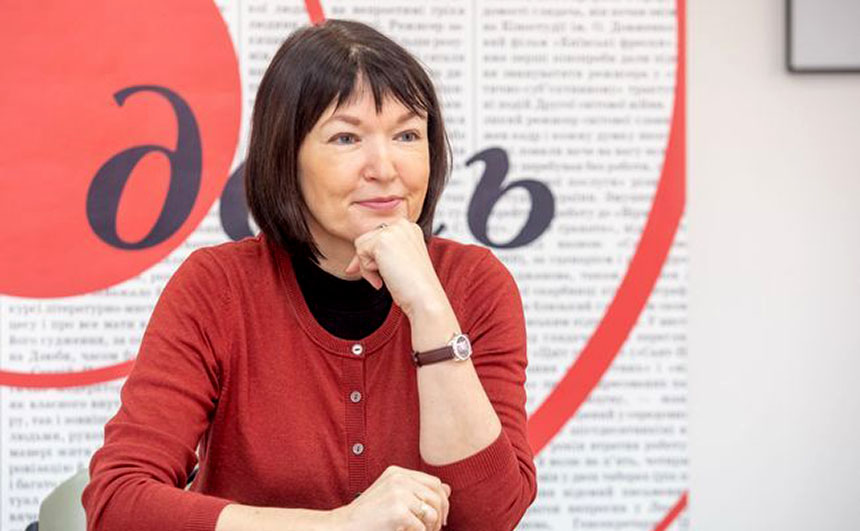
I would also not rush to summarily curse all those who have remained in Russia. These people face a great variety of personal circumstances. Some have elderly parents, children, or someone else they could not bring out of the country. These people have been forced to remain in Russia. They have fallen silent, but this is also a good sign. At least they have refused to support this aggressive public discourse that is ultranationalistic, imperialistic, and anti-Ukrainian by its nature. This is also a position that I respect. Of course, there are all sorts of signatories of letters in support of the "special operation." This is a category of historians whom I condemn. After this, they are no longer historians and scholars.
I also understand the people who are engaged in counterpropaganda in Ukraine. Of course, it is worth remembering that there is quite a fine line between counterpropaganda and propaganda. Counterpropaganda can also be rather good history. Many excellent twentieth-century historians, such as Edward Thompson, very effectively combined their writings with their activism, political convictions, and civic position. I admire him, I like his style, and I am constantly rereading his works. This scholar has a wonderful blend of communist beliefs, an understanding of his responsibility toward the English working class (as a lecturer in adult education institutions, he rubbed elbows with many workers), and his scholarly activities. It is difficult to label Thompson's scholarly output as propaganda, including his book The Making of the English Working Class about English workers. However, this work cannot be regarded as some sort of beautiful myth. Thompson wrote real history for these people. I also see many people in Ukraine who are wholeheartedly writing history for the Ukrainian people. I think that the distinction between propaganda and history resides in the degree to which you are sincere, consistent, and scholarly in your works. It is not propaganda if you do not deviate from what you truly see and understand in the sources. This can be history in its popular version.
A considerable number of Russian historians have taken the side of the Russian regime. What role are they playing in the war?
I think that this role is understandable. The issue is about serving the regime. Back in the Soviet period, we saw quite a few careerist historians supporting the official version of history and Soviet ideology. "Servant of the regime" is the best way to define those historians who support the official version of the past. Some of them do this in good faith because they have an imperialistic worldview. This is their attitude toward democracy and pluralism.
"Academic structures are duplicating the configurations of power, influences, and domination that are already present in international relations"
Your latest article is about the positions Western academic historians have adopted during the war in Ukraine. What, precisely, do you mean by "Western academia," and whom do you call "Western historians"? We know that in Ukrainian academia, there exists a certain "stereotyped" perception of so-called "Western" historiography, which in reality may not exist as a separate scholarly school with specific directions of historical research. Which academic environments and organizations are you talking about in your recent critical survey?
Yes, we often say that there is no single Western academia and that we have different national historiographies and traditions. I may be someone who cannot extricate himself from Marxism, but I think there are genuine socioeconomic divisions in the world, and one of the biggest lies between the "golden billion" and the rest of the world. The West belongs to this privileged part of the world, where people, on average, have high incomes, are more socially protected, and occupy privileged positions compared to the rest of the world. The most interesting thing is that Russia has drawn closer to those countries in recent years.
A very good indicator here is the large international conferences and the national composition of their delegations. For example, ASEES (The Association for Slavic, East European, & Eurasian Studies) regularly holds conferences attended by researchers from the U.S., Canada, Western Europe, and Russia. The Russian delegation continuously ballooned during the first two decades of the twenty-first century.
Meanwhile, Ukraine has always been poorly represented at these conferences. The reason for this is very simple: Ukrainian scholars earn considerably less than their colleagues in Moscow and St. Petersburg. Therefore, they did not have the wherewithal to attend these conferences. Furthermore, scholars from Africa or Latin America do not attend the conferences of this association. In recent years, a few historians have come from East Asia — Japan, Taiwan, and China. But this is the exception to the rule. These scholarly forums are mostly attended by members of Western academia.
This may be a very crude socioeconomic interpretation, but we seem to be talking about a quite real thing that affects the issue of who gets to speak and how much weight a person's words carry. Thus, I was very unpleasantly struck by the position adopted by a number of Western historians because the issue is not simply about historians but also about very influential people who are listened to by the wider Western public and politicians. The thrust of my article is that the people in the West who write about Ukraine partly laid the groundwork for many of Putin's statements. Everyone who studies Putin says that he is not a madman at all. He is implementing some sort of calculations, and one of them is very simple: If he occupies Ukraine in three days or three weeks, then this probably means that all his historical arguments are coming true.
You just mentioned ASEES. Recently a number of researchers, including the Ukrainian historian Sergei (Serhii) Zhuk announced that they were leaving this scholarly society because of the membership and considerable influence wielded in this association by Russian historians who support the Kremlin regime. However, even some Ukrainian diaspora historians think it is necessary to remain in such international associations and maintain a dialogue, at least with those Russian historians who have come out against this military aggression. What is your position?
These are very complex questions. I view ASEES from more rational positions. I recently returned from the last big conference of this association in Chicago. Since 2014, I have become very skeptical of this organization. I think I attended only one ASEES conference between 2014 and 2022. I went this year because I was invited to participate in a panel that looked very interesting. There is always a Ukrainian contingent at ASEES. It is mainly represented by North American historians who study Ukraine and those who began their careers in Ukraine but continued in North America (people like me). This time the conference was attended by quite a few historians from Ukraine who were forced to flee and are now living off various research stipends. I went to ASEES also as a place where I wanted to speak with several historians. However, I fully share the opinion of those who think ASEES is an organization that has exhausted and compromised itself to a significant degree.
In my recent article, I write about the concept of "Eurasia" (and "Eurasian Studies"), which is frequently used by researchers who study the history of the USSR. They use this concept enthusiastically to replace the words "Soviet" and "post-Soviet." The term "Eurasia" should not be used if you are concerned that individual words may have a negative semantic load and will offend societies. We all know that Russian fascists use the word "Eurasia." Of course, there is the continent of Eurasia, while Europe is mostly an artificial construct rather than a geographical concept. Eurasia is a continent with its own tectonic plate, but ASEES employs this concept in the geographic sense. The members of this association do not research the history of Laos, Vietnam, the Philippines, Spain, or Portugal. They study the Russian imperial space and the territories influenced or claimed by the empire. In this context, "Eurasia" in ASEES's name merely conceals the true reality. An appealing and ostensibly neutral geographic word was found to continue studying the Russian Empire.
That is why I am very impressed by Zhuk's position. As regards communication with Russian colleagues, I think highly of the position taken by many of them, and I don't see any problem with continuing a dialogue. However, there is a substantial number of Russian colleagues with whom I will not be associating because of their position on this war. Of course, dialogue is necessary.
War is always divisive. The idea of disengaging from Russia and building a wall on the border with it is very popular in Ukraine today, but I don't think it is realistic. Ukraine has too large a border with Russia, so the only long-term solution to the problem is to change Russia itself. Dialogue and a thorough discussion of problems must take place here, just like in the case of Poland and Ukraine. However, this must be preceded by regime change in Russia.
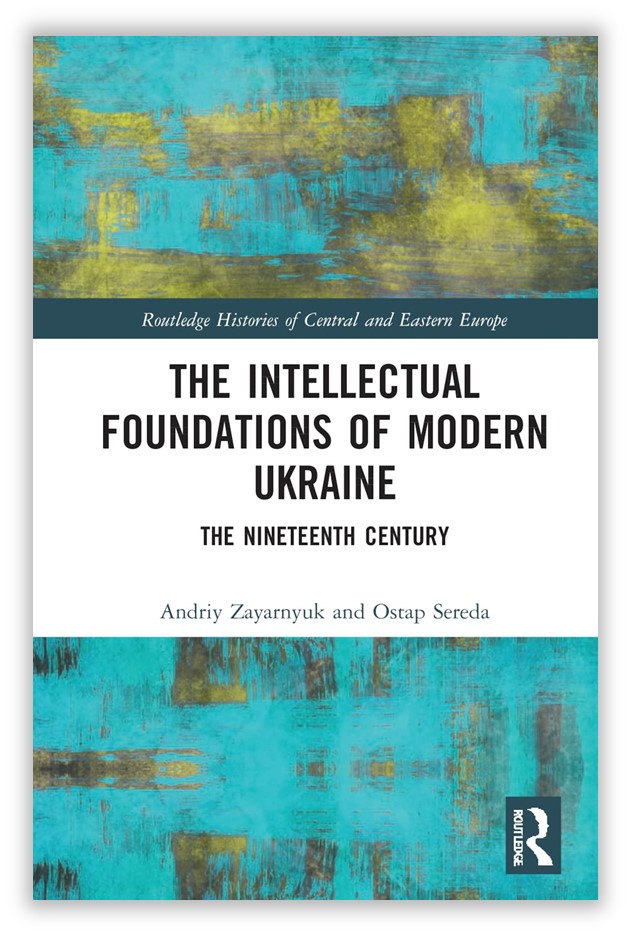 In general, we are talking about a rather long-standing problem of the Ukrainian national movement. Recently, Ostap Sereda and I wrote a book about the intellectual foundations of modern Ukraine in the nineteenth century. Back then, all Ukrainian figures already understood that the Ukraine question was about the political configuration of all of Eastern Europe. Ukraine cannot be excised from this space. The only solution is to reform all of Eastern Europe, including Russia.
In general, we are talking about a rather long-standing problem of the Ukrainian national movement. Recently, Ostap Sereda and I wrote a book about the intellectual foundations of modern Ukraine in the nineteenth century. Back then, all Ukrainian figures already understood that the Ukraine question was about the political configuration of all of Eastern Europe. Ukraine cannot be excised from this space. The only solution is to reform all of Eastern Europe, including Russia.
According to popular rhetoric regularly circulating among Ukrainian historians, certain representatives of North American and Western European academic circles condone Russian propaganda. But you emphasize not so much the individual as the structural factors that have given rise to this situation. The issue is not so much about "Russian money" or individual sympathies as about institutional trends. Thus, can we say that the Russia-first policy strategy has preserved its influence in the field of history to a certain extent? This strategy was inherent in the geopolitical approaches to relations with Ukraine as pursued by the political establishment of North America and Western Europe.
Yes, of course, the imperial center remained privileged even after the dissolution of the empire. Take the language question, for example. What is the point of learning Ukrainian when you can learn Russian and work in Moscow, St. Petersburg, Kyiv, and elsewhere? If we look at market trends in Western academia, we will discover very few positions on the history of Ukraine. They can be counted on the fingers of one hand. At the same time, there is a considerably larger number of positions on the history of Russia alone or Russia in combination with Eastern Europe, the Asian part, or Eurasia (but we all know that this notion pertains precisely to the history of Russia). If you are researching the history of Habsburg Galicia, you are unlikely to be able to apply for a position to teach the "history of Eurasia." That is why academic structures are duplicating the configurations of power, influence, and domination already present in international relations.
"In reality, empires never disappeared; they continue to exist in mental geography"
In your comments on the pro-Russian position of many left-wing intellectuals in Western Europe, you explain this position by pointing to a subconscious attraction to imperialism. For some reason, I instantly thought of the film The Dreamers, which explores the naïve and passionate fascination with Maoism of a group of young French people who have no understanding of its true political reality. Fascination with dictatorial regimes in certain left-wing circles involves not only the USSR or Russia but also China. Why do you explain these tendencies as Western intellectuals' attraction to imperialism? Are there other causes of this fascination?
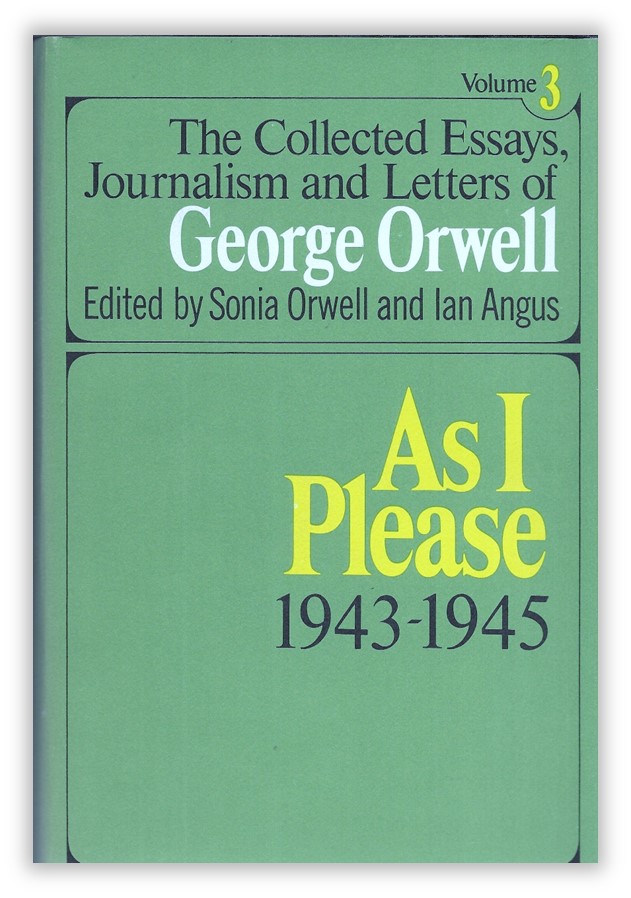 During the Second World War, George Orwell noted that the rhetoric of left-wing British intellectuals was marked by a combination of hatred of fascism and fascination with the Germans, the way they were conquering Europe, and the might and beauty of the Wehrmacht. They had little faith that Britain was capable of resisting this force. In their eyes, Montgomery paled in comparison with Rommel. In Orwell's opinion, this was a typical position of intellectuals alienated from the entire society. In theory, they were left-wingers and should have been with the working class, the impoverished segment of the population.
During the Second World War, George Orwell noted that the rhetoric of left-wing British intellectuals was marked by a combination of hatred of fascism and fascination with the Germans, the way they were conquering Europe, and the might and beauty of the Wehrmacht. They had little faith that Britain was capable of resisting this force. In their eyes, Montgomery paled in comparison with Rommel. In Orwell's opinion, this was a typical position of intellectuals alienated from the entire society. In theory, they were left-wingers and should have been with the working class, the impoverished segment of the population.
The problem is today, like then, a substantial number of left-wing intellectuals are members of the upper-middle class. Ideologically, they are alienated from those segments of society that vote for populists, such as Donald Trump in the U.S. Thus, they understand how limited their opportunities are to change something in their countries. On the one hand, they are intellectuals and should, therefore, change public opinion by acting together with some of the masses. However, they do not see eye to eye with them. In this situation, left-wing intellectuals begin searching for a formula to solve all their problems abroad.
At one point, Western European communists realized they would not be able to bring about a revolution in their countries, so they began to place their hopes on the USSR. Later disillusioned with that country, they began to look to Maoist China, a kind of "Third-World communism" (not simply the communism of disadvantaged classes but also of disadvantaged peoples living under colonial oppression).
Today, it is customary to say that the world of empires has come to an end. (Let's say that the disappearance of the Western empires took place in 1960.) Ukrainian historians are often fond of saying that the Soviet Union was the last empire. In reality, empires have not disappeared but continue to exist in mental geography. After all, the nineteenth-century empires were not just about conquests and the capture of territories but also about imperial metropoles, those grand centers of culture and knowledge with wonderful universities and academies of science.
We are talking about a specific imperial cosmopolitanism. Only some people can permit themselves to be cosmopolitan. If you were born in some Galician village near Brody, it is difficult for you to be a cosmopolitan. It is significantly easier for a university professor in New York or London to consider themselves as such (multilingual, multicultural, and someone who is presumably above all cultural divisions). In many regards, this imperial position of intellectuals has been preserved to the present day. When they look at the world, they look for people like them in other imperial metropoles — in Moscow or St. Petersburg. They are well acquainted with Russian literature but don't have a clue about Ukrainian literature, which was not translated into Western languages in sufficient quantities. And when it was translated, the translators were not that well-known or "brilliant," or the publishers were small.
Thus, when we look at the intellectual construction of the world from the position of an American college or British university, a very imperial picture of reality emerges, where you can clearly see former imperial centers and the periphery, the provinces. Of course, they are trying to overcome this situation, but they do this primarily within their own imperial discourse. For example, Canada is an eloquent example of a "settler society" that is a priori genocidal. The creation of this state of settlers automatically meant that the indigenous population was squeezed out, destroyed, and driven into reservations. At a certain point, people in this society begin to reflect on the idea that their history is probably not all that progressive. However, they perceive this situation within very imperial limits. The most that you can do is to look at Australia. This is also a British settler society that committed similar crimes against the indigenous population. The Ukrainian experience is absolutely foreign to them because it does not fit into their patterns.
It is highly unlikely that all Western left-leaning intellectuals supported the dominant colonial discourse on Ukraine. On the other hand, in Ukraine, there are leftist movements and intellectuals who supported the Revolution of Dignity and are now volunteers serving in the ranks of the Armed Forces of Ukraine and defending Ukraine's independence. How do you see the future of left-wing movements and intellectuals in independent Ukraine?
I do not see any special problem with left-wingers. It is simply the case that one does not expect this from leftists. There are right-wing intellectuals, and they are imperialists. They will excuse the British Empire a priori. On the other hand, among them are anti-communists for whom Russia is the continuation of the Soviet Union, and they hate it as a matter of principle. In fact, these divisions are not about leftists and rightists. The point of departure is the idea that we do not expect such positions from leftists because they support anticolonial movements.
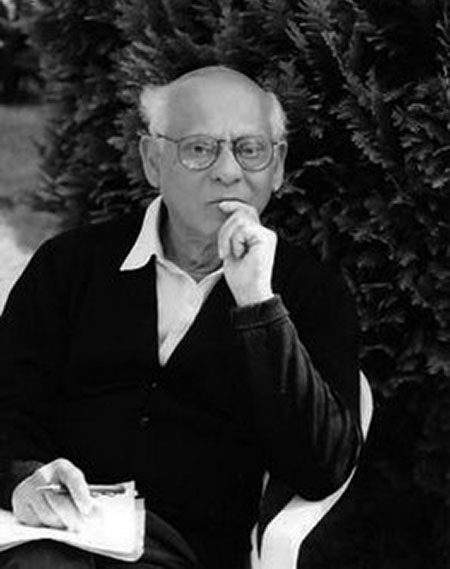
There is a famous essay, "The Prose of Counter-Insurgency," by Ranajit Guha, one of the founders of Indian postcolonial historiography, in which he analyzes the Sepoy Mutiny [the Indian Rebellion of 1857]. The key figures in these upheavals were Indian peasants. For a long period of time, they were meaningless figures in historical narratives. Few people understood why they had rebelled. Guha traces how this rebellion of people was supplanted by empty abstractions without a proper explanation of the clear-cut logic underpinning their actions. Analyzing the reasons behind this state of affairs, Guha singles out three categories of sources. There is the primary discourse, i.e., documents and materials that were created during the rebellion by various British officials and officers who had very little understanding of the world of the Indian countryside. Then, there is the first historiography of the rebellion. Penned by British historians, who reproduced the same approaches to the interpretations of the rebellion that appeared in the materials created by British officials and officers, it was, however, written in the much more sophisticated and complex language of historians. The third level of narratives includes the writings of a considerable number of left-wing Marxist historians and Indian nationalists, who emerged after the declaration of Indian independence and wanted to write about the rebellion in a different.
However, for a long time, the Sepoy Mutiny, as a real historical event, was nowhere to be found, even in the works of Indian historians. This happened because they, too, did not understand it. The rebellious peasantry was as foreign to secular Indian intellectuals as to British bureaucrats and officers. Something similar seems to be taking place in our case. To a certain degree, the leftist discourse on the restoration of justice is still replicating the limitations that existed in the imperial picture of the world. Even though the empire is no more, it continues to exist in the Western system of knowledge production.
At the same time, I deeply sympathize with left-wing intellectuals in Ukraine. If we employ these classic divisions into leftists, rightists, and centrists, which originated during the French Revolution, then perhaps I, too, am left-wing. According to my political convictions, I am probably a classic Social Democrat. I think that one of Ukraine's problems is that it has few leftists. Another big problem is that the crystallization of political trends underpinned by certain ideologies and visions of the present and future has not taken place. Pure populism reigns supreme in Ukraine. People are mobilizing around certain figures, but a policy of principles is missing. The left-wing, liberal, and right-wing movements are all weak. Of course, the situation with the right-wing movement is somewhat different because Ukrainian nationalism is the logical response to imperialism.
Unfortunately, the world has not come up with any alternative to imperialism. When the empires collapsed, national states emerged from their ruins. Naturally, this is not an ideal solution to all the problems (only the nationalists think that). The Ukrainian case is fascinating in that, having achieved our own state in 1991, we immediately became disillusioned with it. This is a typical postcolonial situation. Nationalism remained marginal during the twenty to thirty years of Ukrainian independence. However, everything changed with the annexation of the Crimea and the start of the war in the Donbas. When it is not just domestic politics at stake but the very existence of the state and the people themselves, nationalism begins to perform a mobilizing function and gains considerably more popularity. I think that this is a clear fact and an inevitable feature of contemporary Ukrainian history. Certainly, there can be various types of nationalism: radical right, democratic, and left-wing.
Eastern Europe remained a classic periphery of the capitalist center for a long time. The Russian Empire, which supposedly belonged to the group of so-called Great Powers, existed here but was a kind of "incomplete state" at the same time. It lacked modernization to be able to enter this capitalist center. If the Revolution of 1917–20 is studied, it is worth comparing it to China and Mexico — to those large countries that were not entirely on the periphery but on the semi-periphery. National and social motifs were apparent during the revolutions in these countries. Hence, nationalism also emerged as a response to the domination of "First World" capital. I think that this kind of left-wing nationalism in Ukraine is very promising, although it is that discernible as yet.
Another problem that Ukraine faces is the Soviet Union. This empire defined itself as a socialist civilization and an alternative to capitalism. It was officially left-wing. Today, Ukrainian nationalists reject this imperial legacy in both versions: the Russian Empire and the left-wing Soviet empire. This is a very awkward position for Ukrainian leftists, as it restricts mobilizational opportunities.
"Ukraine's biggest problem is that the Russian Empire still refuses to acknowledge its crimes"
In your critique of Western historians' academic studies of Ukraine, you chose Grzegorz Rossoliński-Liebe's book about Stepan Bandera as an example. What determined such a choice?
This book about Ukraine caused a significant public outcry. The nationalistic public mobilized against this book. The author received anonymous threats. In connection with this, a number of Western intellectuals signed a declaration stating that his life was under threat. The launch of the book in Ukraine was sponsored by German foundations. In this situation, what pained me the most was that, in reality, it was a very poorly written book that in no way deserved such attention. Here is a comparison: Everyone in Poland knows about Jan Tomasz Gross's book Neighbors: The Destruction of the Jewish Community in Jedwabne, Poland. It was a real bombshell that remained at the center of debates about public history and collective memory in Poland for decades. It is a wonderful and much-needed book.
Debate has flared up in Ukraine around Rossoliński-Liebe's book, which is an example of bad history filled with anti-Ukrainian stereotypes that are very much in accord with what Putin says. Once again, this book attests to inequality between the West and the East. Certain Western foundations support Rossoliński-Liebe, believing that this "luminary" of Western knowledge should be brought to Ukraine. They supposedly long to enlighten the local population and show the latter its "real" history. In fact, we are talking about people who have a rather weak grasp of Ukraine and its history. They live in some German world and believe that this gives them the right to judge everyone and everything.
Even though I have not lived in Ukraine for a long time, I still feel part of the Ukrainian national community. And I see the classic Western Orientalist discourse. Once again, we are sensing the presence of nineteenth-century empires, and no one sees a problem with this. I am happy to see people who have nothing in common with Ukraine choose its history as the focus of their scholarly interests. We have quite a few excellent historians who are studying Ukraine because it is fascinating to them. In the case of Rossoliński-Liebe, we are talking about a specific mission: to go to those "barbarians" and enlighten them; show them what "historical truth" is. My biggest problem with Rossoliński-Liebe and Tarik Cyril Amar is that they are bad historians. In making various radical statements and branding people, they should at least read everything that these people have written.
At one time, you wrote a review of Tarik Cyril Amar's book The Paradox of Ukrainian Lviv for the discussion forum hosted by the journal Ab Imperio. In your opinion, why is this author's research also part of the pro-Russian neocolonial discourse?
The main problem with this book, as with Rossoliński-Liebe's, is that it is bad research. The topic itself is quite interesting. However, its conceptual and methodological framework and study of sources are very weak. I also mention Amar in passing in my new article, but only because he collaborated with Russia Today. At the same time, he is one of those historians who constantly talk about some kind of moral responsibility. It is interesting how this relates to what he is actually doing when he is sending his articles to Russia Today, a mouthpiece of the Putin regime. In my view, no respectable academic historian would ever collaborate with Russia Today. It was already clear in 2014 that the Kremlin was a bloody regime. You may not be interested in Ukraine and think that it is part of Russia, but Putin is dispatching murderers who are killing people all over the world. Just for that, I would not collaborate with his media.3
You say that the neocolonial discourse is absolutely unthinkable in Canada. Why is the full-fledged decolonization of the discourse taking place in some countries but not in Ukraine?
The problem here is Russia. In the case of Canada, at a certain moment, the settler society began to become aware of its genocidal crimes. I really dislike this concept of "genocide." We know that there are quite a few problems with it, but in this case, I mean the process of the physical destruction of specific groups. We have always thought of Canada as a beautiful, social country with great respect for human rights. In reality, however, horrible things were done here. The impulse toward reinterpretation should come from within society itself.
Ukrainian society should reckon with its past as well. In the twentieth century, Ukrainians, too, did quite a lot of bad things to other peoples, and it is worth talking about this. After all, any normal society should tell the truth, but this works only when the impulse comes from within. Jan Gross is a Pole, and his native culture is Polish; he knows it down to the smallest detail. In Russia, quite a few intellectuals are trying to initiate such a discussion, for example, the journal Ab Imperio. I may not like their obsession with empire all that much, but I have always respected the editorial board of this journal. The moral choice that the editors of this journal made in 2014 is worthy of respect. Certainly, it is difficult today to call this journal a Russian one because most of its editors do not live in Russia. But this project began in Russia, at the partially peripheral Kazan University, which, notwithstanding, has a long history. The editors of Ab Imperio were forced to leave Russia. The Putin regime stopped most of the attempts to deimperialize Russia from within, which took place in the 1990s and the early 2000s. Ukraine's biggest problem is that, to this day, the Russian Empire refuses to acknowledge its crimes.
A considerable number of Ukrainian historians or public intellectuals who are trying to initiate a discussion in Ukrainian society about the crimes of "our own people" during the Second World War are frequently criticized. The initiators of such discussions are accused of encouraging Putinist propaganda. What strategies should be adopted by Ukrainian historians who write and talk about the history of the Holocaust and other crimes that took place during the Second World War?
I am impressed by Mykhailo Drahomanov's approach. He is my favorite Ukrainian intellectual of the nineteenth century. His strategy was quite simple: When writing for Russian journals and addressing the left-wing Russian public, he championed Ukrainians and their national movement. Addressing Poles, he commented on the imperial character of their discourse. Conversing with Ukrainians, Drahomanov urged them not to be "such narrow nationalists." He reminded them that there were many problematic instances in their attitude toward Jews, Poles, or even Russians in the late nineteenth century.
I believe that there is no universal formula like "My articles have to contain 40 percent anti-imperialness and 60 percent polemics with radical nationalism." Everything depends on the audience and the particular moment. Today, it is difficult to criticize Ukrainian nationalism because it is the sole hope that Ukraine will somehow survive this war and not disappear as a nation. On the other hand, the war cannot justify everything, of course. Various internal Ukrainian debates are taking place even during the war. If people do not accept radical nationalism, it is worth talking about this even during the war because the Ukrainian nation and culture are substantially bigger than radical nationalism.
Photographs from open sources are used in this article.
Interview conducted by Petro Dolhanov.
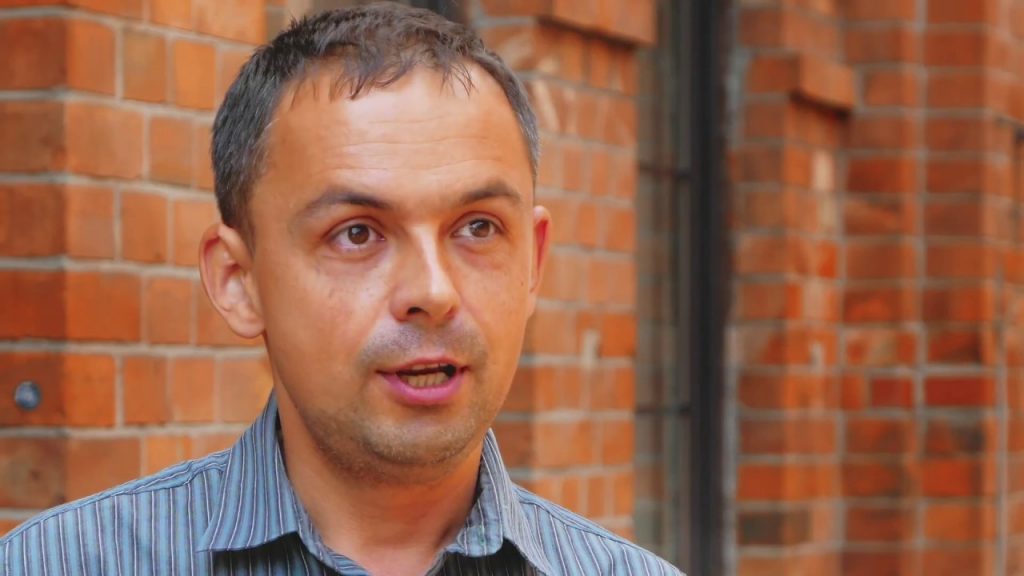 Andriy Zayarnyuk is Associate Professor of History at the University of Winnipeg (Manitoba, Canada); a graduate of Lviv University, York University, and the University of Alberta; author of several studies, including Idioms of Emancipation: "Liberation" Projects and the Mid-19th Century Galician Village; Framing the Ukrainian Peasantry in Habsburg Galicia, 1846–1914; Lviv's Uncertain Destination: A City and Its Train Station from Franz Joseph I to Brezhnev; co-author (with Ostap Sereda) of The Intellectual Foundations of Modern Ukraine: The Nineteenth Century; and co-editor (with John-Paul Himka) of Letters from Heaven: Popular Religion in Russia and Ukraine.
Andriy Zayarnyuk is Associate Professor of History at the University of Winnipeg (Manitoba, Canada); a graduate of Lviv University, York University, and the University of Alberta; author of several studies, including Idioms of Emancipation: "Liberation" Projects and the Mid-19th Century Galician Village; Framing the Ukrainian Peasantry in Habsburg Galicia, 1846–1914; Lviv's Uncertain Destination: A City and Its Train Station from Franz Joseph I to Brezhnev; co-author (with Ostap Sereda) of The Intellectual Foundations of Modern Ukraine: The Nineteenth Century; and co-editor (with John-Paul Himka) of Letters from Heaven: Popular Religion in Russia and Ukraine.
- In March 2022, Sheila Fitzpatrick published the article "Will ostracising Russia bring about an end to the war in Ukraine? The Western media's narrative might be morally satisfying, but it could prove counterproductive." In it, she criticizes the Australian government's "anti-Russian" policies and media discourses hostile to Russia, voicing her belief that this will not bring an end to the war. Fitzpatrick also shares the opinion that neo-Nazi forces exist in Ukraine (citing the example of the Azov Battalion), even though she considers them to be marginal. According to her, the real reason behind Russian aggression is NATO's pushing up to Russia's borders.
- For Ronald Grigor Suny's first commentary on the war in Ukraine, see here. On 27 February 2022, Suny said, commenting on Russian aggression against Ukraine, that he could understand why Vladimir Putin resorted to such a desperate act, considering that there was no serious "threat" from Ukraine. He calls this aggression a kind of "preventive war," perhaps because there might be some kind of threat to Russia from Ukraine in the future. He criticizes the position held by the American political establishment, which tends to compare Putin to Hitler and to interpret Putin's aggressive policy as a manifestation of neoimperialism or fascism. At the same time, Suny states that the war may, in fact, have been provoked by NATO's policy of eastward expansion.
- After 24 February 2022, both Rossoliński-Liebe and Amar were among the signatories of a Statement on the War in Ukraine by Scholars of Genocide, Nazism and World War II, in support of Ukraine. In this public statement, the Russian invasion of Ukraine is called "unprovoked aggression" and "a continuation of Russia's annexation of the Crimean peninsula in 2014 and its heavy involvement in the armed conflict in the Donbas region." The signatories also reject the Russian government's "cynical abuse" of the term genocide in order to justify its unprovoked aggression.
The authors of this text assume full responsibility for the accuracy of the facts and quotations cited here.
Translated from the Ukrainian by Marta D. Olynyk.
Originally appeared in Ukrainian @Ukraina Moderna
This article was published as part of a project supported by the Canadian non-profit charitable organization Ukrainian Jewish Encounter.
NOTE: UJE does not necessarily endorse opinions expressed in articles and other materials published on its website and social media pages. Such materials are posted to promote discussion related to Ukrainian-Jewish interactions and relations. The website and social media pages will be places of information that reflect varied viewpoints.







